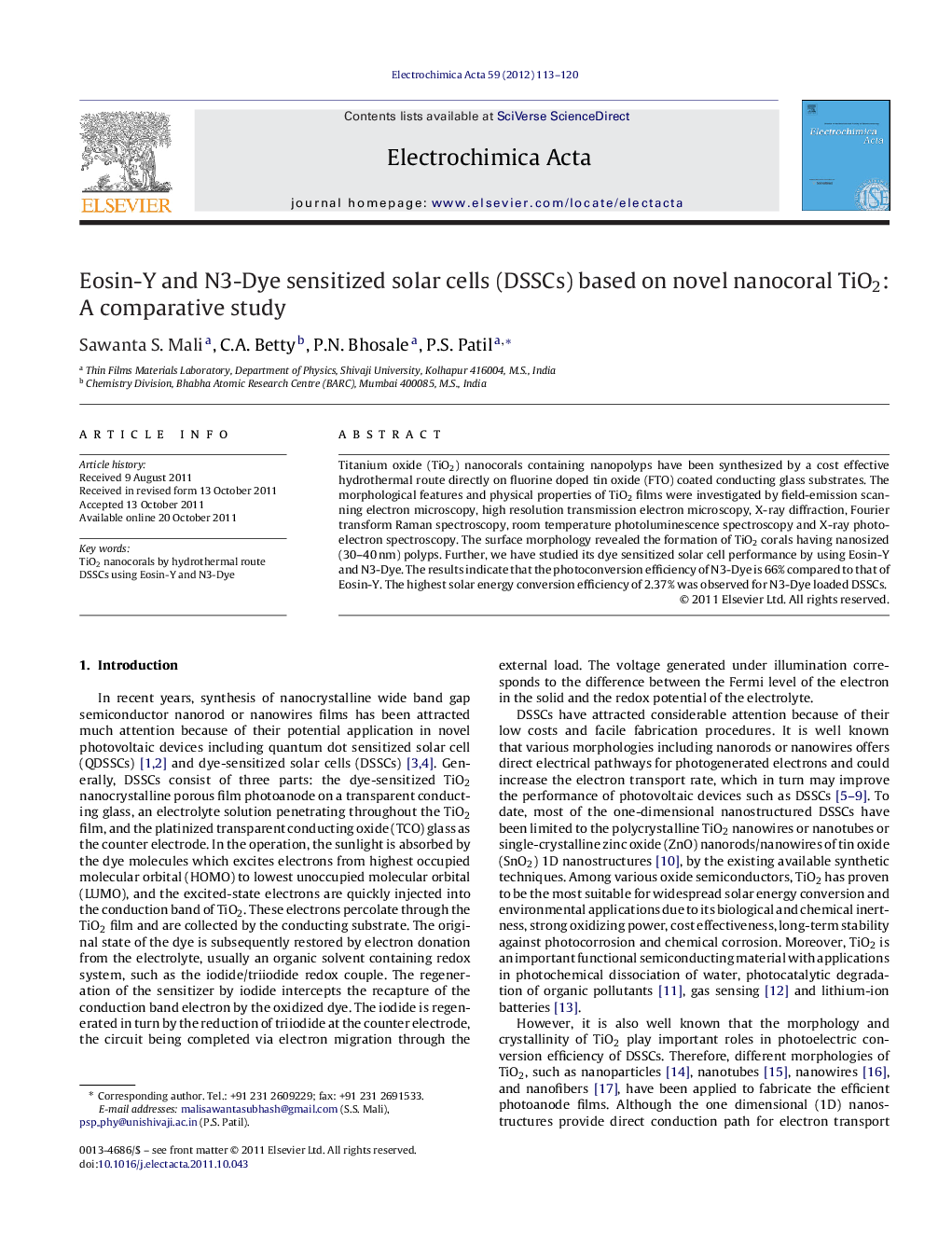| کد مقاله | کد نشریه | سال انتشار | مقاله انگلیسی | نسخه تمام متن |
|---|---|---|---|---|
| 189320 | 459678 | 2012 | 8 صفحه PDF | دانلود رایگان |

Titanium oxide (TiO2) nanocorals containing nanopolyps have been synthesized by a cost effective hydrothermal route directly on fluorine doped tin oxide (FTO) coated conducting glass substrates. The morphological features and physical properties of TiO2 films were investigated by field-emission scanning electron microscopy, high resolution transmission electron microscopy, X-ray diffraction, Fourier transform Raman spectroscopy, room temperature photoluminescence spectroscopy and X-ray photoelectron spectroscopy. The surface morphology revealed the formation of TiO2 corals having nanosized (30–40 nm) polyps. Further, we have studied its dye sensitized solar cell performance by using Eosin-Y and N3-Dye. The results indicate that the photoconversion efficiency of N3-Dye is 66% compared to that of Eosin-Y. The highest solar energy conversion efficiency of 2.37% was observed for N3-Dye loaded DSSCs.
Figure optionsDownload as PowerPoint slideHighlights
► Synthesis of novel TiO2 nanocorals by hydrothermal route.
► Comparative study of Eosin-Y and N3-Dyes.
► The efficiency of N3-Dye is 66% improved to that of Eosin-Y.
► The highest solar energy conversion efficiency 2.37% was observed for N3-Dye loaded DSSCs.
Journal: Electrochimica Acta - Volume 59, 1 January 2012, Pages 113–120